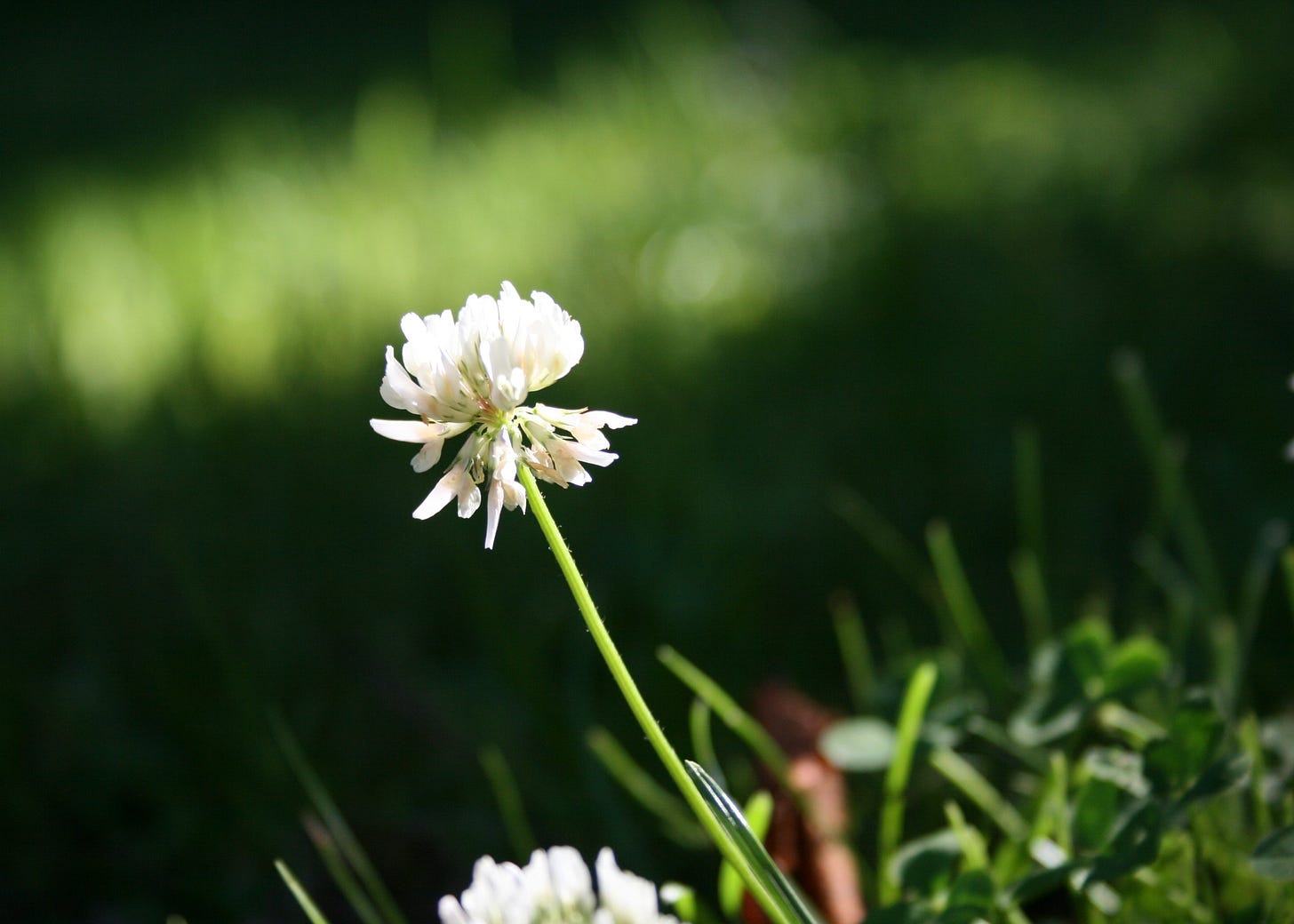I love the Emily Dickinson encouragement to “tell all the truth, but tell it slant.” But occasionally slanted tellings, or overly complex descriptions, can frustrate and alienate. So, today, I want to tell it plain.
(I’m sure that I’ll still have many opportunities to share some truth told slant or mysterious or just wandering all over the place…)
For now, here’s the straight goods - here is what I’m getting at when I write about “a compassionate consent to reality”:
By compassion, I mean: the Presence of a care and love that enables trust and courage (that can come from within - from self or spiritual awareness - or from compassionate others)
By consent, I mean: our opening ourselves to an acceptance and even welcoming of…
By reality, I mean: an honest experience and engagement with “what is” – the fullness of life as it presents itself to us as we attend to it
Putting this together with just minimal clarification: With the courage and trust enabled by compassion, we can open ourselves to an acceptance and welcoming of a rich and honest engagement of the fullness of life, with all of its joys and sufferings, loves and fears, togetherness and isolation.
Then to expand just a little while still trying to keep it plain: This consent makes space for a naturally unfolding gift of healing (integration/processing) from our hurts and wounds. The same process enables us to integrate a larger capacity and understanding, facilitating our maturing and spiritual development. Healing and maturing are overlapping words describing aspects of how we integrate, grow and thrive.
I’ll also be going on to say that a very broad understanding of contemplative practices – many of which are undoubtedly already a part of our lives – are among the best ways that we can be intentional about that consent and healing, the facing and accepting especially of what we’ve been avoiding or simply not seeing.
I believe that contemplative practices can be ancient or new, spontaneous or intentional, spiritual or mundane, and that we each need to find our own versions that are effective in our lives. I look forward to describing a broad range of these contemplative possibilities in future posts and how they can enable the “emotional regulation” that trauma therapies and others have identified as crucial to the prevention of or healing from potentially traumatising events.
[This is part of a series of posts exploring a contemplative pathway to healing/maturing that I call “a compassionate consent to reality.” For an introduction to the project, you may want to see this post here.
]



This is so marvellous, Walter! VERY accessible language for the DEEPEST paths to engagement with Reality... and with the capital R, I'm thinking to include the Divine (Ultimate Reality), such that your articulation is a beautiful invitation to experience one's living connection with 'the God of our understanding' (in 12-step language). This would work wonderfully across faiths, but including agnostics and even consenting atheists, if I understand Simone Weil, who conceived of atheism as attention to God in God's impersonal aspects.
I like that you are (for this section) telling it plain. Compassion being the presence of care and love enabling courage to see, to be open to start to see. The opening of ourselves to acceptance and even welcoming as we consent to, and live the gift of reality as an honest engagement with the fullness of life Love, pain, joy, or sorrow (I am just rambling a little bit here and what I feel I should be saying is life on life's terms - the good, the bad, the ugly and the beautiful. Perhaps I am thinking what might be or might not be a paradox saying our way to heal from trauma is to accept you have trauma or with trauma we heal by being traumatized. ( The rest of this (paradox) is is we have to feel pain to know we have pain so we can accept pain to live with pain and be well.. I like that those who have little trust can develop or continue with contemplative practices to grab onto life in its fullest even if it's just doing the dishes - making you bed - or becoming one with the moment in the quiet of calamity or joy or just plain to be. Who knows what silence will bring. I have to end this comment Walter because i am writing way to much. I like healing and maturing are overlapping words you use. That's a big, big reality. It takes courage to grow up and be mature. It's two different words. Thanks Walter. Really love your insights.